Unscripted TV
Researcher

What does a researcher do?
Researchers are key to any production because they find the people, the places, the facts, figures and stories that are at the heart of every TV show. In other words, the content.
Researchers spend a lot of the time on the phone and looking online trying to find the right material for a show, from stories and locations to props, products and information. They may have to read endless documents or books, watch hours of footage, do background checks on people, fact-check figures or chase statistics to ensure their research stands up. Researchers often prepare a ‘brief’, which is a final document containing the information a producer needs. This may be used to clarify the content to a channel commissioner or to give a presenter information before a shoot. Sometimes on an outside broadcast, like a royal wedding or a football match, they might sit next to the presenter feeding them the information they need as the event unfolds.
While a lot of research is carried out from the office, the role can also require travel. Researchers may need to interview potential contributors, ‘recce’ locations or see an event or show. They often attend and assist with filming.
Practically speaking, researchers handle a lot of the logistical nitty-gritty, from organising travel for contributors and the delivery and storage of props to clearing footage and ensuring forms are signed and documents filed.
Researchers are mainly freelance and work from project to project, although they are occasionally staff on ongoing productions such as news or sport. Some researchers specialise in certain areas of production, such as ‘casting’ where they could be looking for dancers for a talent show, for example, or house hunters for a property programme.
Watch and read
- TV Researcher in BBC Studios
- A Day in the Life: Researcher
- Reality TV talent managers
- Anna Bonaddio on runners, researchers and assistant producers
What’s a researcher good at?
- Learning: be curious and enjoy looking for what a programme needs, take an interest in content and different subjects, don’t be afraid to ask questions
- Communication: be a good talker, confident when meeting people and be clear about what you are looking for and why
- Problem solving: jump over any hurdle to find the best material, think laterally and use initiative to ensure solutions are found
- Writing: create concise and factual documents that present your research clearly
- Organisation: document your day-to-day research with times and dates, keep paperwork in order, work to deadlines
Who does a researcher work with?
Researchers work from a brief laid out by the producer and report back to them. On a day-to-day basis they work with assistant producers and production coordinators and, when filming, with crews, contributors and presenters.
How do I become a researcher?
Except in cases where serious expertise is required, most productions will look for someone who is wanting to take a step up from runner or personal assistant. Screen Scotland has set up a TV Researcher Programme, a 10-month paid training scheme.
At school or college:
You can take A-levels or Highers in media studies, traditionally research-based subjects such as history, or any subject you’re interested in and within which you could develop a specialist knowledge.
If you want to go straight into a job or apprenticeship, the following Level 3 vocational qualifications will equip you:
- BTEC National Extended Diploma in Creative Digital Media Production
- Aim Awards Diploma in Creative and Digital Media
- OCR Technical Diploma in Digital Media (Moving Image and Audio Production)
- BTEC National Diploma in Film and Television Production
- UAL Diploma/Extended Diploma in Creative Media Production and Technology
Get an apprenticeship:
An apprenticeship is a job with training, so it’s a great opportunity to earn as you learn. It can also be a good way of getting into the TV industry. Go to ScreenSkills information on apprenticeships for the main apprenticeship schemes in television. If you can’t find a role in TV, it might be worth finding on in a related industry such as theatre, journalism or video production. This will give you skills that you can then transfer into TV at a later point. Check out What’s an apprenticeship? to learn more about apprenticeships and find an apprenticeship to learn how to find one in your region, or approach companies directly.
Get a degree:
You don’t need a degree to be a researcher, but you might want one. Any subject you’re passionate about could be useful to you in unscripted TV production. If you want a degree closely related to the TV industry, take a look at ScreenSkills’ list of recommended courses and select one in unscripted TV. We recognise courses with our ScreenSkills Select award where they offer training in the relevant software, dedicated time to building a portfolio and have strong links with industry.
Get work experience:
Try to get work experience by writing to local production companies and asking if they offer any. Keep an eye out for work experience opportunities at the BBC, ITV, Channel 4, Sky and the PACT Indie Diversity Training Scheme.
Look outside the industry:
Researcher is a position that covers so many bases that even if you find yourself outside the screen industries for a little while, you can still gain valuable transferable experience. Look for opportunities in project management roles that will hone and highlight your strength in organisation, communication and problem solving.
Take a short course:
Hone your skills in researching by taking a specialist course. Researcher short courses are rare but not unheard of. Go to the list of training courses recommended by ScreenSkills to see if there is one.
Network:
Get to know people in the unscripted TV industry by attending events. Meet professionals and ask them questions about their work, while demonstrating interest in and knowledge of the industry. Offer to provide them with your professional contact details and try to stay in touch with them. Go to how to network well to learn how to do this.
Network online:
Create a LinkedIn profile. See if there are Facebook pages or other social media groups for people making unscripted TV in your area. There might even be groups for runners and trainees. Join them. Create a ScreenSkills profile. There are a lot of crewing agencies that will charge you to be on their books. Sign up to the free ones initially. Wales Screen, Northern Ireland Screen and other areas offer free crew databases. Find a film office near you and get connected. If you do sign up to paid sites, make sure they specialise in the areas in which you’re interested.
Search for jobs:
Research unscripted TV production companies that you’d like to work for and watch the programmes that they make. Regularly check their websites and job listings websites to see if they are advertising for roles. You can also send in a short speculative letter with your CV to the head of talent. Register your CV on websites like The Talent Manager, which is used by most broadcasters and independent production companies when looking for staff. StartinTV offers tips on creating your CV and attending interviews, as well as some advice for your first day working in TV.
You might also be interested in…
Being a development researcher or production coordinator in the unscripted TV industry. You might also be interested in being a production coordinator in the film and TV drama industries. Alternatively, you could consider being a production coordinator in the games industry.







